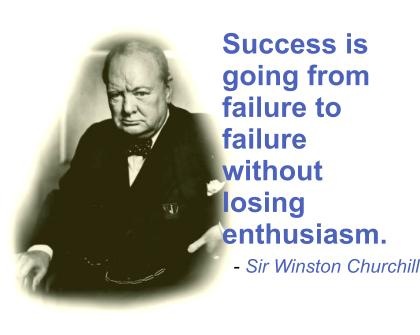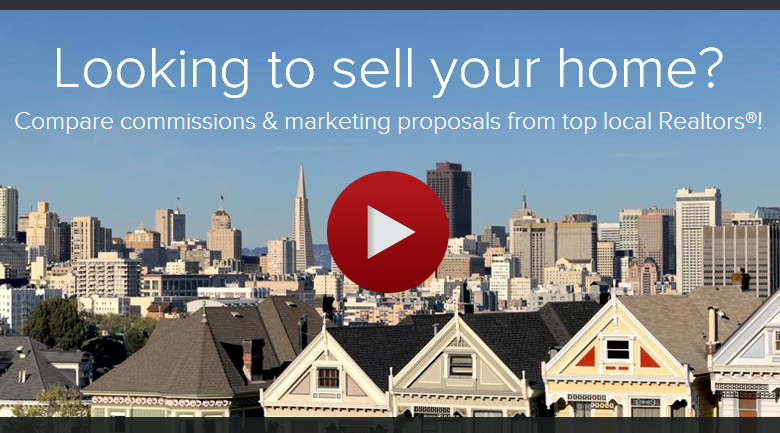
Jonathan correctly pointed out that a third of of the members of NAR sold nothing last year. Amazingly, that isn’t new – that has been true for as long as such stats have been kept on how much is being sold.In a solicitation email I received from Dirk Zeller he talked about the Pareto Principle – better known as the 80-20 rule. This would suggest that 20% of the agents do 80% of the business and that 80% of the agents do the remaining 20%. Dirk did some research for his area (Bend, Oregon) and concluded that Bend matched the NAR numbers which are even more astounding than the 80-20 rule. Dirk’s conclusion: 7% of Realtors control about 93% of the total business.
Pretty amazing. I have not verified this number but I know it is close, if not exact. For the Phoenix area here is what I found: there are about 40,000 members of the MLS (ARMLS). Only 4.50% of the total members of ARMLS had six sales or more (buyer or seller sides) in the past twelve months. This is not an “average”, this is flatly stating that less than 5% of all Realtors (selling homes through the MLS) made at least 6 sales in the past year. I don’t have an easy way of deleting those Realtors who work for builders, etc., but I can say the number with six or more sales is about 1,800 agents.
Dirk goes on to say that the 7% of agents who are doing all the business do things differently:
How do they do it?
Well, quite simply, I’d have to say differently. That’s right… they do more business than everyone else because they do business differently.
That they do things differently than the 93% who don’t do much business is pretty obvious. That would have to be a true statement. However, I don’t believe the successful agents do things much differently than any successful small business does them. Main job is still: get and keep customers. This never changes. In the residential brokerage business there is one thing that is “different” than most other businesses. Listings. If you will take the time to really learn to list you can make more money than most people you will ever know. And it isn’t hard either. In fact, so simple, even a Realtor can do it.
Recommendations: Read to the point of understanding, The Millionaire Real Estate Agent. Go to this page and spend some time. It’s free and it is all about getting and getting rid of listings.
Russell has been an Associate Broker with John Hall & Associates since 1978 and ranks in the top 1% of all agents in the U.S. Most recently The Wall Street Journal recognized the Top 200 Agents in America, awarding Russell # 25 for number of units sold. Russell has been featured in many books such as, "The Billion Dollar Agent" by Steve Kantor and "The Millionaire Real Estate Agent" by Gary Keller and has often been a featured speaker for national conventions and routinely speaks at various state and local association conventions. Visit him also at nohasslelisting.com and number1homeagent.com.








































Benjamin Bach
July 6, 2008 at 6:04 am
Russel, have you seen Linda and Jim McKissack’s new book, Presentation Mastery for Realtors ? It’s definately not the textbook that the Millionaire Real Estate Agent is, but its a very good book about putting together a 7th level business.
Jennifer in Louisville
July 6, 2008 at 6:25 am
I think the lure of “easy money”, and a low barrier of entry attracts a lot of persons that aren’t committed to the real estate industry.
I suspect that about as much thinking as they do when considering the career is: “Well, I’ve failed at the other 3 or 4 jobs in my life – lets give real estate a whirl.”.
A few small fees, a couple weeks of classes, and passing of a test later – and BAM! They are now a “real estate professional”.
They don’t realize that it takes work to succeed (which is probably why they failed at previous careers).
Mike Farmer
July 6, 2008 at 6:32 am
You can also be in the 7% with no listings or very few listings, so, what you say is true for the most part because most agents are trying to get listings, but it still remains that buyer agents can be in the top 7% by doing something different.
Getting and getting rid of listings is not the sine qua non of success in real estate, except if you are mainly a listing agent — then, yes, getting and getting rid of listings is vital to success. However, if buyer agency is the main focus, then getting buyers and making transactions is vital to success.
Chuck G
July 6, 2008 at 7:53 am
I agree with Mike F. Although it’s a little more difficult, you can certainly climb the performance charts by being primarily a buyer’s agent. In the ultra competitive city in which I make a living, there are a half dozen long-time Realtors who seem to get most of the listings. That will change over time, but if you’re going to survive during that transition, you’d better be bringing buyers to these listings.
What’s interesting about these “top” agents is that not one of them has a blog, nor even understands the value of one. But where do I get my last four buyers? You got it…my blog. The times they are a-changing, and I firmly believe the old-school style of winning listings will be left out in the cold in the coming years.
Elaine Reese
July 6, 2008 at 8:30 am
I don’t question that a few agents are doing most of the business, however, I suspect there’s more to the numbers if one digs a little deeper.
In our market, the agents with the biggest volume have a team of 8-10 agents contributing to that volume that gets assigned under the name of just one agent. Therefore, the other 7-9 agents would show no volume giving a distorted viewpoint. If the volume of those big teams were divided by the number of team members, often those teams do less per person than many single agents.
The other problem in stating agents without any volume is that it includes brokers and office managers who have a license but are non-selling agents. Our CEO has a license but has never sold a home. Our office managers have licenses, but are non-selling managers so they don’t compete with us. They would be included in your stats.
There are also new-build reps who have a license, yet are no longer being recorded in the MLS sales volume.
Then there are the retirees who get to keep their license without having to pay dues, yet, they mostly refer out any business from friends that happens to come their way.
Bottom line, there are many caveats to quoting the number of agents without any sales. It would really be interesting to see how the numbers shake out if only the ACTIVE agents – those actually out pounding the streets for business – we able to be reviewed.
Kimh
July 6, 2008 at 9:21 am
I would not be surprised if that number became 6% by the end of this year. Sad but true on selling ratios.
Jonathan Dalton
July 6, 2008 at 9:32 am
But how can you tell who is active and who’s active but not really, Elaine? We’re seeing the change come here with folks who don’t renew and go to inactive status … beyond that, I don’t see how you can filter out the kindergarten teachers who have a license just for kicks and might get a deal a year from the folks really trying to make a living.
I tend to agree with you on the team concept as it relates to the numbers … at the same time, I don’t think it’s a knock on the rainmakers if they’ve put together an infrastructure capable of doing a level of business that can’t be supported by a single agent. They also carry additional risk, depending on the scope of the organization, as their fixed costs are substantially higher than yours or mine.
I know I need to get back to prospecting for listings … it’s been quite a while since I’ve tried because I’ve been kept busy with buyers. It’s a short-sighted view (with great results so far) but one I know I need to change.
Eric Blackwell
July 6, 2008 at 10:17 am
First off, great quote Russell.
Now to the heart of the matter. I think these numbers will change this year right around the time that each person has to re-up with their local board and pay fees. In Louisville that is October. I expect a drop in the # of agents on the rolls.
We have a team in our office who is doing exactly as you suggest: Doing it differently. Listing. I went into the office on the 4th of July and guess who was there. Them. with three more contracts…
Barry Cunningham
July 6, 2008 at 11:05 am
Hey mike..it’s happening again..uh oh…we agre wholeheartedly! Russell’s post is underscoring, IMO, why agents should be concentrating on the Buyer’s side of things rather than adding listings to an oversupplied market.
Main job is still: get and keep customers…be it they be buyers all the better
Jim Lee
July 6, 2008 at 12:24 pm
the 7% that do the 93% of the business are different from the other 93% that do 7% of the business; they have lots more money. ;->
I believe there are lots of Realtors out there simply “playing office” so they say they have a job whether they make any, or little, money at it or not.
Lots of housewifes, retirees, and more than a small share of bozos.
Mike Farmer
July 6, 2008 at 2:20 pm
I’m going to get into your demographic yet, Barry.
Eric- New Orleans Condos and Lofts
July 6, 2008 at 4:04 pm
Every market is a little different. In Louisiana which is not a bubble state or never had a bubble market. The number of agents is smaller than when I started 12 years ago. Its hard to make a living at it for many agents.
Many just quit after Katrina to do other things. We had one agent that did 30 million by herself just say that is enough and walked away. She became an advocate of good government and causes that make a lot of sense.
This is not every market as its much harder to break into the business. Many new agents are however doing well as they have good work habits. Hard work does tend to pay off in this business.
Bill Lublin
July 6, 2008 at 4:13 pm
@ Jennifer;
I think that has always been the case – real estate is a lousy job but a great career – too many people don;t get into it as a career, they think its a job where all oyu need to do is be present to be paid.
Bill Lublin
July 6, 2008 at 4:17 pm
@ Mike Wouldn’t you agree that being a buyer agent is the same as being a listing agent? Its really about selling services rather then selling product.
When I got in the business, because I was young, I found it easier to work with buyers then with sellers because their needs were generally more immediate, and satisfying those needs produced income more rapidly. When I got to a point where I couldn’t make much more money then unless I sold both ends of the transaction, I started listing (this was pre-buyer agency in my market) I didn;t realize that the major benefit of a large listing inventory is generating buyer leads, since most people don’t but the home the initially inquire on
Bill Lublin
July 6, 2008 at 4:20 pm
Barry; I had to stop because I agree totally with your statement “Main job is still: get and keep customers”
I partially agree with “…be it they be buyers all the better” – In any market, the benefit is always to have the type of customer that is in short supply. In a market like we had a few years ago, you wanted the listings because everyone had the buyers. Now you want the uyers because everyone has the listings – smart guys and gals always try to have both 😉
Jonathan Dalton
July 6, 2008 at 4:24 pm
One of the conundrums here in Phoenix is one of eight homes is an REO property and that’s where the most activity is. These are most sellable listings. I’ve got a backroad in through my company but that’s about it …
There’s good and bad to the bank-owned side of things. If the banks pay the invoices quickly, great. If not … well, I hear the sucking sound coming out of my own wallet again.
Richard Johnston, REMAX - Sherman Oaks
July 6, 2008 at 5:06 pm
“In fact, so simple, even a Realtor can do it.”
Now that is a funny statement. Thanks for making us laugh!
Mike Farmer
July 6, 2008 at 6:02 pm
@Bill — that was pretty much my point, that’s why I disagreed with the emphasis on “getting and getting rid of listings”. However, buyer agency is not just for new agents — it can be a main source of business, or THE source of business. I’ve been doing it for 13 years. I take a few listings, mainly from friends, but my main source of business is buyer agency and working with investors.
Paula Henry
July 6, 2008 at 8:14 pm
Russell – I originally heard this 1/3 figure earlier this year when a broker friend came back from Washington DC. When you look at it as 1/3, it seems like a lot, but when I look around at the industry and even those in my office – I know it’s true.
Although I prefer listings, my business is 50/50. It’s a good thing right now. I’m working my way into the 7%.
I subscribed to the RSS for your site, but have been unable to manage my feed reader, so thanks for the link.
Eric Blackwell
July 7, 2008 at 9:13 am
Paula-
That is a good point. Simply look at your office or those around you (more in my case) and you can see that the 33% number is real.
Best
Eric
Jennifer Rathbun
July 7, 2008 at 9:14 pm
If everyone that is not productive got out of the business, what would happen to our fees? Would they skyrocket and and put even more people out of business. I know you want to linit the club, but as a new agent trying to break into the business, any more fees are going to make it hard right now. Knowing AG people are now yelling, “yes! Get out! Less for you. More for us!” Sorry, not going to happen!
I’m a 3rd generation realtor. I’ve had 4 brokers in the family. 2 Managing brokers. 1 Education director. I’m in the business. It’s just going to take time to catch up.
But even if I don’t make it to the elite 7%, I’m ok with that – and so are many other agents. I’m here to help the community. I’m here to help my family. I’m here because I like mingling with my Real Estate Comrads. And I’m not going down without a fight!
Arlington real estate guy
July 8, 2008 at 6:52 am
I must say that Russell, despite all this awesome contributions to bloodhound and agentgenius and the writers thereof, is still stuck in the past when it comes to opining that you must get and get rid of listings. Perhaps that used to be the case, but now it certainly is not. Most listing agents are nothing more than data entry agents:
1) No exposure for the home except using their listing to market themselves in the newspaper as newspaper ads do almost next to nothing to sell homes–yes it’s a raquet for most “listing agents”
2) crappy amateur photography by themselves or a sucky vendor of small, dark, blurry photos
3) listings that are not even properly entered into the MLS with adequate info for selling agents or buyers
4) etc.
To those of use who actually know how to get a home a TON of exposure it’s pathetic and a joke and not even worth respecting….
For the fraction, and I mean fraction of listing agents who actually know what they’re doing my hats are off to you definitely. I suppose the same thing could be said of many selling agents (buyer) as well to be fair. I’ve seen people overpay by $100,000 for a condo who had idiot agents by their side.
With changes in the industry and how consumers procure information, the buyer side is now potentially as lucrative and the listing side. I’m on track to sell 35 homes this year. How many listings have I had–not a damn one. How many open houses–0. I’m not calling any of the warm leads either–about 2000 registrations this year. If I had a team following up who knows what would happen–I’m working on it with baby steps.
For those that can generate a bunch of warm leads (100s and 1000s) and collar grabbers and convert them into clients and disperse them to their teams, there are no limits on the buyer side anymore. And with proper techniques of follow up, these “buyer” agents will within a few years be listing a lot of property as well, but probably they will be more effective at their fiduciary duties as a listing agent instead of promoting themselves.
Russell, the world has changed. It is not all about the listings anymore. I’m sure it used to be, but seriously, after all your exposure to new models of real estate open your mind.
J
Jim Lee
November 17, 2008 at 7:29 am
The rich too are ‘different’; they have more money just like the hard working 7%.